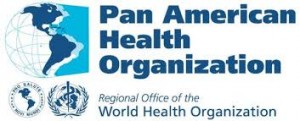In 2012, 220,000 cases were reported, but PAHO/WHO estimates an additional 60,000 people remain undiagnosed, most of them living in cities
 Washington, D.C., 24 March 2014 (PAHO/WHO) –
Washington, D.C., 24 March 2014 (PAHO/WHO) –
One in five people infected with tuberculosis in the Americas remains unaware of the disease, whether due to failure to access health services or because they are not properly diagnosed, according to estimates by the Pan American Health Organization/World Health Organization (PAHO/WHO).
In 2012, almost 220,000 cases were reported, and an estimated 19,000 people died from tuberculosis in the Americas. Furthermore, an additional 60,000 people are believed to have TB who have not yet been diagnosed or reported. This situation not only endangers their lives, it also facilitates further transmission of tuberculosis, and generates socioeconomic costs for individuals and their communities.
“The diagnosis and treatment of all people affected by TB can only succeed if all health providers, community organizations, partners, and countries join forces to detect and treat these 60,000 people”, stated PAHO/WHO Director Carissa F. Etienne, referring to the “Diagnosis and Treatment for All” slogan of this year’s World TB Day commemoration. “Universal access to high-quality health services through primary health care-based health systems will help to reduce the toll of TB and to ensure that all peoples in the region of the Americas live long, productive lives”, she added.
The burden of tuberculosis varies from country to country, and weighs most heavily on the most vulnerable populations that live in large cities – usually in the outskirts, where living conditions lead to overcrowding, limited access to drinking water and sanitation services, and difficulties in obtaining access to the health services. In Latin America and the Caribbean, 80% of the population lives in cities and one in four of these people lives in poverty.
With the support of the United States Agency for International Development (USAID), PAHO/WHO is implementing an initiative for control of tuberculosis in the large cities of the region that tries to diagnose cases of TB in a timely manner, so as to speed up the reduction of the disease in the Americas. Under this initiative, local authorities coordinate with the health authorities and carry out intersectoral actions for education, social protection, urban development, and health. At present, it is underway in Lima, Peru; Bogotá, Colombia; and Guarulhos, Brazil.
The countries of the Americas have reduced the prevalence of tuberculosis by 61% between 1990 and 2012, and have reduced the TB mortality rate by 68% in the same period. The progress achieved is largely due to the implementation of the PAHO/WHO “Stop TB” strategy, which is based on timely diagnosis and treatment, universal access to care, and adequate combinations of anti-tuberculosis drugs.
However, in Latin America and the Caribbean, tuberculosis is still one of the leading causes of death from a single infectious agent, alongside HIV/AIDS. In addition to undiagnosed cases, other challenges include the spread of multidrug-resistant TB, the emergence of extensively drug-resistant TB, and the increasing frequency of TB and HIV/AIDS coinfection.
PAHO was founded in 1902 and is the oldest international public health organization in the world. It works with all of the countries in the continent to improve health and quality of life for the people of the Americas. It serves as the Regional Office for the Americas of the WHO and is also the specialized health agency for the Inter-American system.
About tuberculosis
Tuberculosis is caused by the bacterium Mycobacterium tuberculosis, which most commonly affects the lungs. One out of three people worldwide has latent tuberculosis, which means they are infected but do not have any active symptoms of the disease and cannot transmit it.
Tuberculosis is transmitted through the air when people with the disease cough, sneeze, or spit. The lifetime risk of an infected person becoming ill is 10%. However, people with immunodeficiency, such as those with HIV infection, malnutrition, or diabetes, are at greater risk of becoming ill, as are those who consume tobacco, alcohol, and illegal drugs. The symptoms of active pulmonary tuberculosis include cough of over 2-3 weeks’ duration, weight loss, fever, night sweats, decreased appetite, and coughing up blood. TB is curable, but can be fatal if left untreated. Treatment usually lasts six months and costs less than US$100 in many developing countries.


